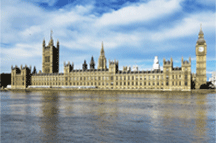Part 2 of the Lobbying Bill returned to the House of Lords for a third day of Committee stage on the 16th December. The Bill was previously debated on 5th November and, following Lord Ramsbotham’s request, found itself subject to the delay. Unfortunately, the Bill remains unamended, which has left Lord Ramsbotham “disappointed”.
The National Council for Voluntary Organisations (NCVO) received praise from several Peers for its engagement and for speaking out on the issue. In its latest involvement, NCVO’s Chief Executive Sir Stuart Etherington, wrote a letter listing amendments he has asked Peers to support.
Lord Rooker (Lab), backed by Baroness Blood (Lab) and many others, opened the debate by strongly advocating the exemption of Northern Ireland from Part 2 of the Lobbying Bill “for as long as it is governed by a statutory power sharing executive based upon the Good Friday Agreement.”
Lord Rooker argued that groups “were set up during direct rule in order to get action because the politicians were not there. […] The last thing they need to be forced to do, as this legislation almost invites them to do, is to align themselves with a political party during the election; notwithstanding […] the fact that the parties in power in Westminster do not stand for election in Northern Ireland.”
The second part of the discussion focused on the meaning of ‘controlled expenditure’. Lord Hardie (CB) suggested limiting the scope of the Bill to an organisation “having as its principal purpose the intention to promote or procure electoral success at any relevant election”. As Lord Harries of Pentregarth pointed out, this “would immediately exempt all charities from the Bill.”
Lord Hardie (CB) added: “The Bill extends the meaning and scope of controlled expenditure by expanding the activities from the mere production and publication of election material” to include various activities such as “market research, public meetings, rallies and media events”. This could lead campaigners to confusion about the Bill’s boundaries, implying the possibility of facing prosecution and criminal penalty.
9In the third and final part of the debate, discussions took place about the dangers of the Bill exerting negative influence on costs such as Welsh translation, as argued by Lord Morris of Aberavon (Lab), or staff costs, as pointed out by Baroness Mallalieu (Lab).
The Bill will pursue its course in the House of Lords for a last day in Committee stage on 18th December.














